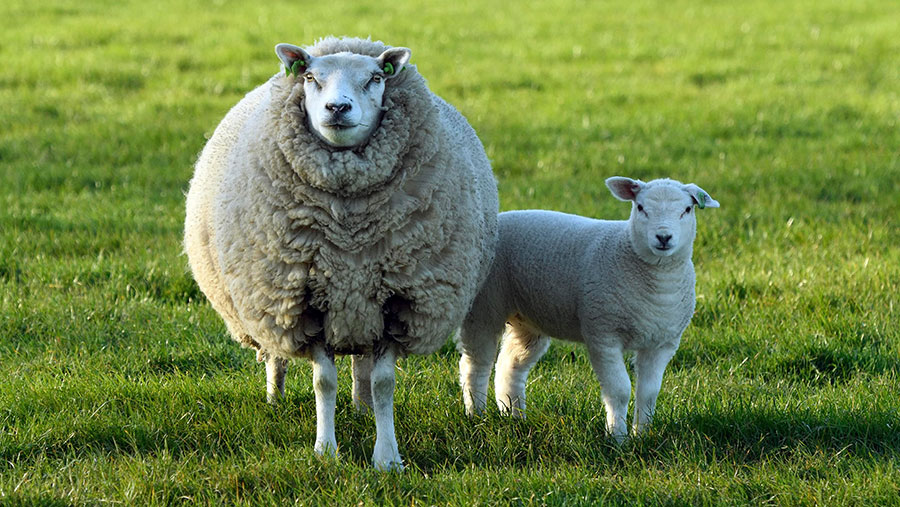Flocks should be wary of worm spike if rain comes
 © Richard Dorn / imageBROKER/Shutterstock
© Richard Dorn / imageBROKER/Shutterstock Sheep farmers should monitor lambs for worms burdens closely and be on guard if it rains.
This advice comes from leading sheep health experts after a prolonged period of dry weather has allowed worms to lie dormant in dung on pastures.
But worms will hatch out into infective larvae soon after completing their life cycle once it rains.
See also: How tenant farmers doubled stocking rate in three years
Zoetis Parasite Watch
- 26 farms across the UK are monitoring worm fluke and flies
- All results are uploaded to the Parasite Watch website
- Monthly updates are available
Within a week of rain
Sheep vet Fiona Lovatt has warned that farms monitoring egg counts fortnightly could miss a rise in worm burden because worm risks typically spikes within a week of rain.
“Don’t assume that all is OK and wait for another couple of weeks before checking again, as it could be too late then.”
Sheep consultant Lesley Stubbings warned farms that saw high strongyle egg counts earlier in the year should be particularly cautious, as dry weather has effectively paused their lifecycle.
However, these farms will likely see high faecal egg counts (FECs) again if significant rain falls on pasture.
Ms Stubbings said: “Initially, because there will be more infective larvae, you may not see high worm egg counts for two to three weeks after the rain. But that doesn’t mean to say your animals aren’t infected.
“Waiting until you see high egg counts could be too late in this situation, so monitoring growth rates and general condition is key. You need to speak with your animal health adviser about the best course of action.”
Steps to take
- Take note when it rains – worm risk will spike within a week.
- Monitor egg counts and growth rates to get an accurate picture of how worms are affecting your farm and sheep performance.
- Take two weights as a minimum– one at eight weeks and one at weaning – to see what effect parasites might be having on lambs.
- Farmers who saw high strongyle egg counts earlier in the year should be extra careful, as the dry weather will have stopped them from completing their cycle and have been dormant. Rain will allow them to hatch out and complete their lifecycle.
Keep a close eye on sheep
Tom Carlisle, who farms near Skipton, has seen exceptionally low worm egg counts compared with previous years. However, a FEC taken after some wet weather at the end of May did highlight a low level of nematodirus in the lambs.
He said: “We have been quick to dose with a white wormer to keep on top of nematodirus and will continue to carry out FECs to track levels, and to also check the worming dose is still effective.”
“We are having to keep a close eye on the sheep now with the weather breaking. Not only is it a perfect time for worms, it is also perfect conditions for flies and maggots. We have not found any fly strike so far,” he said.
